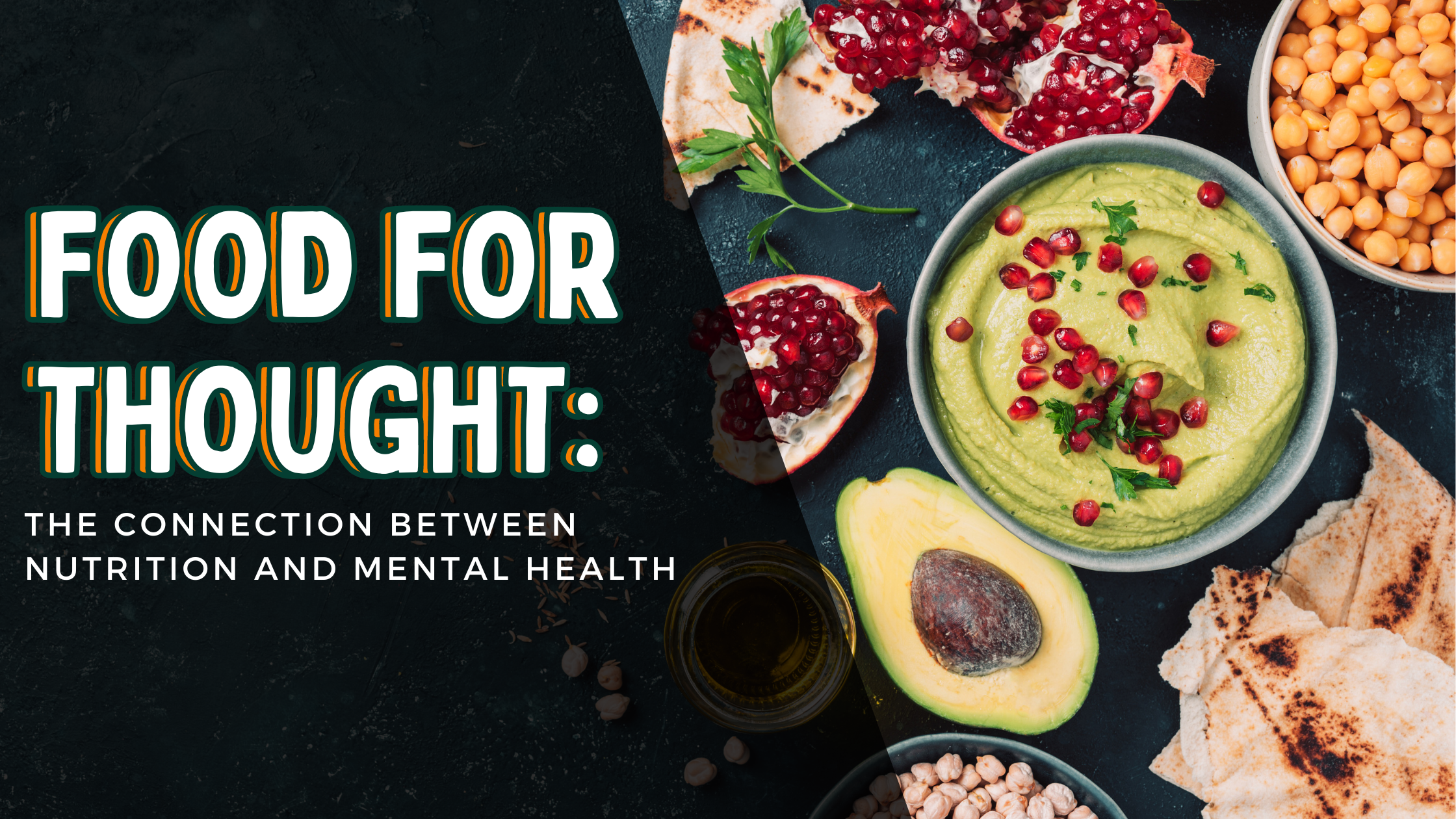Food for Thought: The Connection Between Nutrition and Mental Health
Many of us in recovery have a toolkit for when life gets rough - our go-to coping skills for when our brains just won’t cooperate.
Mine includes affirmations, tapping meditations, and talking it out with my support people. Some coping skills are preventative, such as regular movement or medication.
But what about food?
My own relationship with food is complicated at best, but a big part of my recovery has been learning to tune in to my body to give myself what I truly need, whether that’s rest, movement, or a snack.
Since I am at the point in my recovery journey where all foods are safe, I am now becoming more interested in how what I eat can affect my mental state. I still won’t tell you to follow a specific diet or live a sad sugarless existence, but I will tell you what I’ve learned so far.
Fats
Our brains take a ton of energy, about 20% of our daily intake. It’s mostly fat, so it turns out eating fat can feed your brain, specifically, Omega-3.
Omega-3 fats impact the nervous system by helping neurotransmitters function, getting you that sweet, sweet serotonin.
So much so that there is evidence that balancing the Omega-3 fat intake with Omega-6 fat intake can help ease symptoms of depression and ADHD.
Omega-3 fats can be found in salmon and other fish, walnuts, and chia seeds, or taken as a supplement.
Omega-6, Omega-3’s tasty but less helpful cousin, is commonplace in a typical American diet and found in soybean and vegetable oils.
The trick is to get a balance of both for optimal brain health.1
Carbs
Sometimes we think of carbs as the enemy, influenced by wellness trends and diet culture.
Carbohydrates actually produce your brain’s favorite energy source, glucose. Low glucose levels can exacerbate anxiety.
Not all carbs are created equal, however. There are simple carbs like pasta, candy, and soda, and complex carbs like brown rice, sweet potatoes, and starchy fruits and vegetables.
The difference is that simple carbs absorb quickly, giving your body a short burst of energy, and complex carbs give you long energy. You can maximize your brain fuel by choosing more complex carbs over simple ones and adding a protein or fat.
Also, taking time to eat when you feel hungry helps steady your glucose levels to keep your brain happy.
Having done my own field research on this, I can tell you that regularly eating carb-heavy fruits is an effective way of keeping my anxiety under control.2
The brain-gut connection
You might know our friend serotonin is responsible for the body’s sleep, appetite, pain response, and regulating mood. But who knew 95% of serotonin comes from your gut? I did not.
That means our gastrointestinal health impacts our brain function in a big way. Studies have shown that populations whose diets are high in fruits, vegetables, seafood, and unprocessed grains are 25%-35% less likely to have depression.3
Probiotics such as yogurt and fermented foods (mmm…pickles) can feed the good bacteria in your gut.4 Treat your digestive system well, and your brain will reap the benefits.
So yeah, food can be a pretty powerful tool for addressing your mental health.
Like almost everything in life, it’s all about balance. I think adding more nutrient-rich food to your life is wonderful self-care, but also, so is having cake with friends.
Eat well and be kind to yourself.
INTERESTED IN BOOKING A 1:1 SESSION WITH LACIE?
CLICK HERE!
1 Lachance, Laura, and Drew Ramsey. “Food, mood, and brain health: implications for the modern clinician.” Missouri medicine vol. 112,2 (2015): 111-5.
2 Haverland, Sarah Craig, and Ellen Jones. "Carbs & Anxiety: How Carbs Affect Mental Health." hopeway.org, 31 Aug. 2022, hopeway.org/blog/carbs-and-mood. Accessed 13 May 2024.
3 Selhub, Eva, editor. "Nutritional psychiatry : Your brain on food." Harvard Health Publishing, Harvard Medical School, 18 Sept. 2022,
www.health.harvard.edu/blog/nutritional-psychiatry-your-brain-on-food-201511168626. Accessed 10 May 2024.
4 Zizinia, Sarah. "How to improve your gut health." MD Anderson Cancer Center, 29 Apr.2022, www.mdanderson.org/cancerwise/how-to-improve-your-gut-health.h00-159538956.html#:~:text= Prebiotic%20and%20probiotic%20foods%20like,ensures%20that%20the%20bacteria%20grows . Accessed 13 May 2024.




